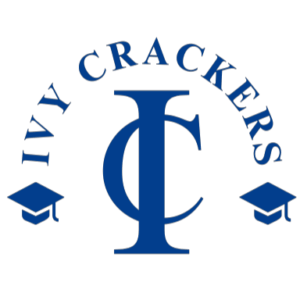Essay Strategies for Kellogg School of Management Applications

Kellogg Essay 1: Intentionality is a key aspect of what makes our graduates successful Kellogg leaders. Help us understand your journey by articulating your motivations for pursuing an MBA, the specific goals you aim to achieve, and why you believe now is the right moment. Moreover, share why you feel Kellogg is best suited to serve as a catalyst for your career aspirations and what you will contribute to our community of lifelong learners during your time here. (450 words)
Applying to Kellogg Business School involves articulating your motivations for pursuing an MBA, your specific goals, and why now is the right moment. Additionally, you need to explain why Kellogg is the best fit for you and what you will contribute to the Kellogg community. With a 450-word limit, it’s crucial to be clear, concise, and reflective. Here’s a strategy to help you effectively structure your essay:
1. Reflect Deeply on Your Motivations: The foundation of a compelling Kellogg Business School essay starts with a deep reflection on your motivations for pursuing an MBA. This isn’t just about stating your goals but understanding the personal experiences and moments that have shaped your decision. Here’s how to dive deep into this aspect:
- Begin with Introspection: Take time to reflect on your career journey and personal experiences. You must ask yourself “What specific events or experiences have driven me to consider an MBA?”, “How have these experiences shaped my career aspirations and personal growth?”, and “What are the gaps in my knowledge or skills that an MBA will help fill?
- Avoid Generic Reasons: Common reasons like career advancement or a salary increase are not compelling enough. Admissions committees read countless essays, and these generic reasons won’t make you stand out. Instead, aim to provide a more nuanced and personal explanation.
- Delve into Specific Experiences: This could be:
- A Project or Role: Describe a significant project you led or a role you undertook that made you realize the need for advanced business skills. For example, “Leading a cross-functional team to develop a new product line made me aware of my limited knowledge in strategic planning and financial analysis.”
- A Career Plateau: Talk about a point where you felt you couldn’t progress further without additional knowledge and skills. For instance, “After reaching a managerial position in my company, I realized that to move into executive leadership, I needed a deeper understanding of global markets and advanced leadership techniques.”
- An Inspirational Moment: Share a story about a mentor or leader who inspired you. Explain how their influence made you recognize the importance of an MBA in achieving similar success. For example, “Working under a visionary CEO who transformed our company’s culture and performance inspired me to pursue an MBA to gain similar transformative leadership skills.”
2. Define Clear and Specific Goals: A crucial component of your Kellogg Business School essay is articulating your short-term and long-term goals with precision. Clear, specific goals not only show that you’ve thought deeply about your career path but also demonstrate intentionality and alignment with Kellogg’s values. Here’s how to effectively define and present your goals:
a. Articulate Your Short-Term Goals: Short-term goals should be specific, achievable, and closely tied to your immediate post-MBA career. They serve as a bridge between your current experiences and your long-term aspirations. Consider the following steps to clearly define your short-term goals:
- Identify Your Desired Role: Specify the position/domain you aim to secure immediately after graduating from Kellogg. For example, “I aim to join a top consulting firm as a strategy consultant.”
- Select the Industry: Clearly state the industry in which you want to work. For instance, “I plan to work in the technology sector, focusing on digital transformation strategies.” This demonstrates that you have done thorough research about your goals.
- Detail the Impact: Explain the kind of impact you want to make in your short-term role. For example, “In this role, I aim to help companies integrate cutting-edge AI solutions to streamline operations and enhance customer experiences.”
b. Outline Your Long-Term Goals: Long-term goals should reflect your ultimate career aspirations and the broader impact you hope to achieve. They should build logically on your short-term goals and demonstrate a visionary approach to your career. Here’s how to define your long-term goals:
- Specify Your Ultimate Career Objective: Identify the ultimate position or level you aspire to reach. For example, “I aspire to lead the Innovations Vertical of a top global tech firm.”
- Indicate the Sector and Role: Clearly state the sector and role you see yourself in. For example, “I aim to lead a sustainable supply chain division in a Fortune 500 company.”
- Describe the Broader Impact: Articulate the larger impact you hope to achieve through your long-term career. For instance, “In this role, I plan to drive innovation in eco-friendly practices, significantly reducing the company’s carbon footprint and setting new industry standards for sustainability.”
3. Show Why Kellogg is the Perfect Fit: One of the most important aspects of your Kellogg Business School essay is to convincingly demonstrate why Kellogg is the ideal place for you to pursue your MBA. This requires thorough research and a clear understanding of how Kellogg’s unique offerings align with your personal and professional goals. Here’s how to effectively show why Kellogg is the perfect fit:
a. Research Thoroughly: Start by delving deeply into Kellogg’s programs, culture, and values. Explore the school’s website, attend virtual information sessions, and connect with current students or alumni. Look for specific elements that resonate with you and your career aspirations.
b. Identify Key Aspects That Align With Your Goals: Pinpoint the specific features of Kellogg that match your professional and personal goals. Here are some elements to consider:
- Programs and Specializations: Identify programs, concentrations, or specializations that align with your career objectives. For example, “Kellogg’s focus on Marketing and Data Analytics perfectly aligns with my goal to drive data-driven marketing strategies in the tech industry.”
- Experiential Learning Opportunities: Highlight Kellogg’s experiential learning opportunities that you find appealing. For instance, “The Kellogg Global Lab will allow me to apply classroom knowledge to real-world challenges, enhancing my ability to manage international business operations.”
- Leadership Development: Emphasize Kellogg’s commitment to leadership development. For example, “The Leadership Journey program at Kellogg offers the perfect environment for me to develop the strategic and interpersonal skills necessary for my long-term goal of becoming a Chief Innovation Officer.”
c. Mention Specific Courses, Clubs, and Initiatives: Showcase your proactive approach by mentioning specific courses, clubs, or initiatives that you are excited about. This demonstrates your genuine interest in Kellogg and how you plan to leverage its resources.
d. Connect With Kellogg’s Culture and Values: Kellogg’s culture and values are integral to its identity. Show how you resonate with these aspects and how you will contribute to the community.
4. Explain Why Now is the Right Time: A critical aspect of your Kellogg Business School essay is articulating why now is the ideal time for you to pursue an MBA. This requires a clear explanation of your career trajectory, the challenges you’ve encountered, and the opportunities you see on the horizon. Here’s how to effectively convey this in your essay:
a. Demonstrate Your Career Plateau or Progression: Explain if you’ve reached a plateau in your current role or if you’re at a point where an MBA will significantly enhance your career progression. Be specific about the limitations you’re facing and how an MBA will help you overcome them. For example:
- Career Plateau: “After five years in a mid-level management position, I’ve realized that to move into senior leadership roles, I need to acquire advanced strategic and financial acumen that only an MBA can provide. My current role has honed my operational skills, but I now require a broader business perspective to achieve my career goals.”
- Career Progression: “Having steadily advanced from an analyst to a project manager, I’ve gained substantial experience in managing teams and projects. However, to transition into a strategic leadership role, I need to deepen my understanding of global market dynamics and strategic decision-making, which an MBA will equip me with.”
b. Highlight Emerging Challenges and Industry Trends: Identify any new challenges or industry trends that necessitate further education. Show that you are aware of these developments and how they impact your career. For example:
- Emerging Challenges: “The rapid digital transformation in my industry has presented new challenges that require advanced knowledge in data analytics and technology management. An MBA will provide me with the tools to navigate these complexities and lead digital initiatives effectively.”
- Industry Trends: “The growing emphasis on sustainability and corporate social responsibility in my field has highlighted the need for leaders who understand these areas deeply. Kellogg’s focus on sustainability aligns perfectly with my goal to lead eco-friendly initiatives in my organization.”
c. Critical Assessment of Your Career Path: Show that you’ve critically assessed your career path and concluded that an MBA is the logical next step to bridge the skill gap or to get a specific career transition. This demonstrates maturity and strategic thinking.
d. Personal Readiness and Motivation: Explain why you are personally ready to embark on this journey now. This could involve your personal growth, readiness for a new challenge, or timing with personal life circumstances.
5. Highlight Your Unique Contributions: A key component of your Kellogg Business School essay is showcasing what unique perspectives, experiences, and skills you will bring to the Kellogg community. Kellogg values diversity, collaboration, and lifelong learning, so it’s essential to highlight how your background and attributes will enrich the school. Here’s how to effectively convey your unique contributions:
- Reflect on Your Background and Experiences: Think about the unique aspects of your personal and professional background that have shaped you. These could be related to your culture, upbringing, career path, or any significant life experiences.
- Highlight Leadership and Teamwork Experiences: Detail your leadership roles and teamwork experiences that demonstrate your ability to collaborate and lead in diverse settings.
- Emphasize Extracurricular Passions: Share your extracurricular passions and how they have developed your skills and character. These activities can also show your commitment to community and lifelong learning.
- Illustrate Your Commitment to Collaboration: Showcase your ability to work well with others and your commitment to creating a positive impact through collaboration.
- Demonstrate Lifelong Learning: Explain how your commitment to lifelong learning will benefit the Kellogg community and how you plan to continue this journey at Kellogg.
6. Maintain a Cohesive Narrative: Creating a cohesive narrative in your Kellogg Business School essay is essential to effectively communicate your story. Your motivations, goals, timing, fit with Kellogg, and unique contributions should interconnect seamlessly to form a compelling and logical storyline.
7. Edit and Seek Feedback: Finally, refine your essay through multiple drafts. Seek feedback from mentors, peers, or professional editors who can provide objective insights. Pay attention to clarity, conciseness, and coherence, ensuring every word adds value to your narrative.
Kellogg Essay 2: Kellogg leaders are primed to tackle challenges everywhere, from the boardroom to their neighborhoods. Describe a specific professional experience where you had to make a difficult decision. Reflecting on this experience, identify the values that guided your decision-making process and how it impacted your leadership style. (450 words)
This essay asks you to describe a specific professional experience where you had to make a difficult decision, and to reflect on the values that guided your decision-making process and how it impacted your leadership style. This prompt is designed to assess your problem-solving abilities, ethical compass, and growth as a leader. Here’s a strategic approach to tackle this essay effectively:
1. Choose a Meaningful Experience: Start by selecting a professional experience that had a significant impact on you. The situation should be complex enough to demonstrate your decision-making skills and personal values. Consider moments where you faced ethical dilemmas, resource constraints, conflicting priorities, or team dynamics issues. Choose an experience where the stakes were high and your actions had a meaningful impact on the outcome. For example, you might write about:
- Navigating a project crisis with tight deadlines and limited resources.
- Addressing a conflict within your team that threatened project success.
- Making a strategic business decision with significant financial implications.
2. Set the Scene: The opening of your essay is crucial in engaging the reader and providing a clear understanding of the context in which your difficult decision occurred. By setting the scene effectively, you create a foundation for the rest of your narrative. Here’s how to ensure your essay starts strong:
- Provide Background Information: Begin by giving the admissions officers a snapshot of your professional environment and your role within it. This helps situate your story and gives context to your decision-making process.
- Highlight the Challenges: Clearly outline the specific challenges that made the decision difficult. This sets the stage for the complexity of the situation and emphasizes the stakes involved.
- Emphasize the Significance of the Decision: Illustrate why this decision was pivotal and how it had far-reaching consequences. This helps the reader understand the gravity of the situation and the importance of your role.
3. Describe the Decision-Making Process: After setting the scene and outlining the context of your professional dilemma, the next crucial step in your essay is to delve into the specifics of the decision-making process. This section should provide a detailed account of how you analyzed the situation, evaluated different options, and ultimately arrived at a decision. Here’s how to effectively articulate this process:
- Outline the Options Considered: Begin by outlining the various options that were available to you in addressing the challenge. This demonstrates your ability to think critically and explore alternative courses of action.
- Factors Weighed in Decision-Making: Explain the factors that were critical in your decision-making process. This could include considerations such as risk assessment or the impact on internal as well as external stakeholders.
- Highlight Analytical and Critical Thinking Skills: Emphasize your analytical prowess and critical thinking skills as you navigated through the decision-making process. Discuss how you gathered relevant information, analyzed data, and forecasted potential outcomes.
- Discuss Trade-offs and Justification: Articulate the trade-offs inherent in each option and why you ultimately chose the course of action you did. Justify your decision based on your values, the project’s objectives, and the long-term interests of your stakeholders.
4. Reflect on the Values That Guided You: After describing the decision-making process in your essay for Kellogg Business School, the next crucial step is to reflect on the core values that guided your actions during this challenging situation. This reflection not only demonstrates your ethical compass but also reveals insights into your leadership style and personal integrity. Here’s how to effectively articulate this reflection:
- Identify Core Values: Begin by identifying the specific values that were pivotal in shaping your decision-making process. These values could include integrity, accountability, transparency, teamwork, or customer focus.
- Importance of Values in Context: Explain why these values were particularly important in the context of the decision you had to make. Discuss how they contributed to achieving the desired outcome or mitigating potential risks.
5. Discuss the Impact on Your Leadership Style: After reflecting on the values that guided your decision-making process in your Kellogg Business School essay, the next step is to discuss how this experience influenced your leadership style and personal growth. This section allows you to showcase your ability to learn from challenges and evolve as a leader. Here’s how to effectively articulate this reflection:
- Reflect on Changes in Leadership Approach: Begin by identifying specific ways in which this experience impacted your leadership style. Consider aspects such as decision-making, team dynamics, and resilience under pressure.
- Illustrate Growth and Development: Describe how this experience contributed to your personal growth and leadership development. Highlight specific skills or qualities that you refined as a result.
- Link to Future Goals and Aspirations: Connect these insights to your future goals and aspirations, emphasizing how your evolving leadership style aligns with your career trajectory and your ambitions for pursuing an MBA at Kellogg.
6. Conclude with a Forward-Looking Statement: Wrap up your essay by linking your past experience to your future aspirations and how an MBA from Kellogg will help you achieve them. Emphasize your readiness to contribute to the Kellogg community and leverage the skills you’ve gained.
Crafting a compelling essay for Kellogg’s prompt on difficult decisions involves selecting a meaningful experience, clearly describing the decision-making process, reflecting on the guiding values, and discussing the impact on your leadership style. By following these strategies, you can create an engaging and insightful essay that showcases your growth as a leader and your alignment with Kellogg’s values. This approach not only strengthens your application but also demonstrates your readiness to thrive in Kellogg’s dynamic and collaborative environment.
How can IvyCrackers help you?
When it comes to making informed decisions about an MBA/MS/STEM program, there is often no substitute for firsthand knowledge and advice from those who have been through similar experiences. That’s why we, at IvyCrackers, firmly believe that one of the best ways to gain valuable insights about a particular MBA/MS/STEM program or university is to interact with current students and alumni of that very university
Connecting with them can give you a more comprehensive understanding of what it is be part of that university, both in terms of coursework and extracurricular activities, as well as the kind of career options that may be available after graduation. Our “Mentor Session” initiative is designed to help facilitate these connections by pairing you with members of our community who can share their personal experiences and perspectives with you.

Our team of mentors, at IvyCrackers, has been passionately dedicated to helping countless candidates achieve their academic and professional goals. We have worked tirelessly to provide comprehensive services that are tailored to your specific needs, including refining your application essays, conducting mock interviews, perfecting your resumes, and strengthening your profiles. Our commitment to excellence is reflected in the success stories we have helped create, with our clients consistently achieving remarkable feats in their chosen fields.
We believe that everyone has the potential to excel, and we are here to help you unlock that potential. So why not head over to our ‘Mentors’ section now and discover how we can help you fulfill your dreams today?
Visit our Youtube Channel, Linkedin or Instagram Page for regular updates!


